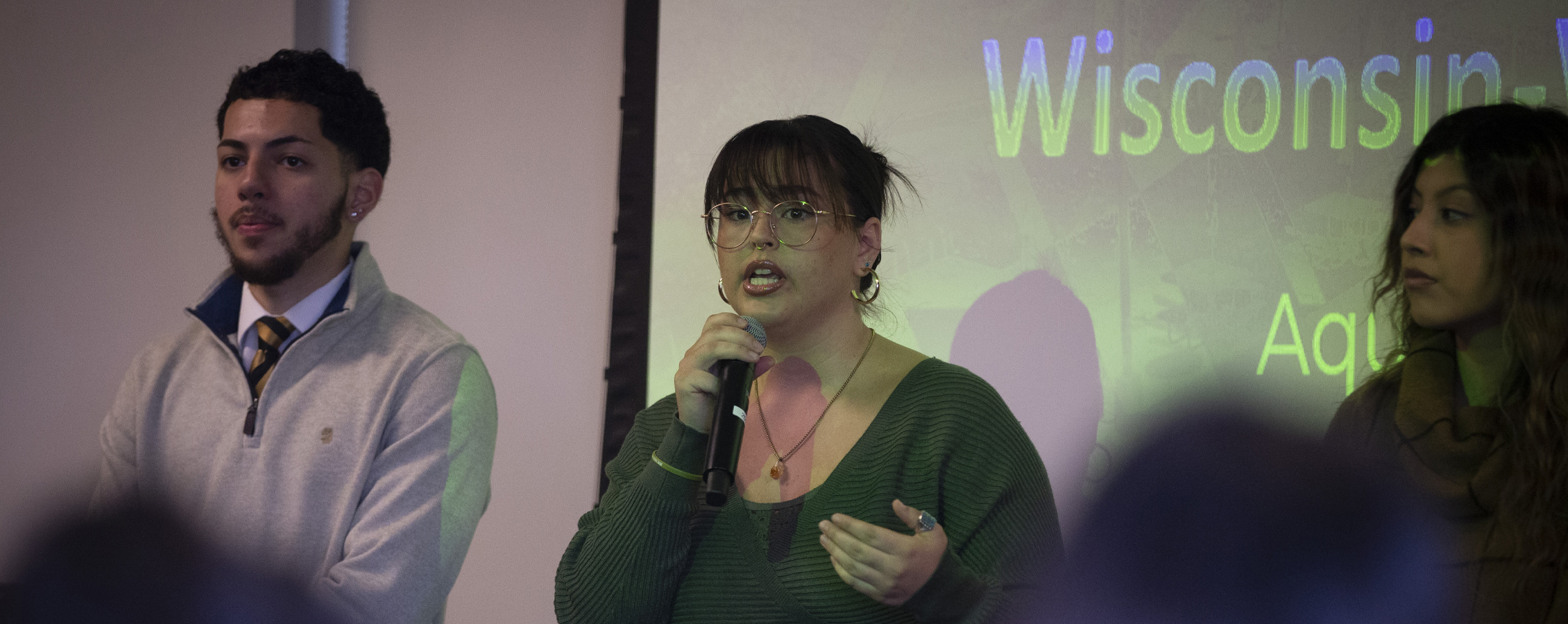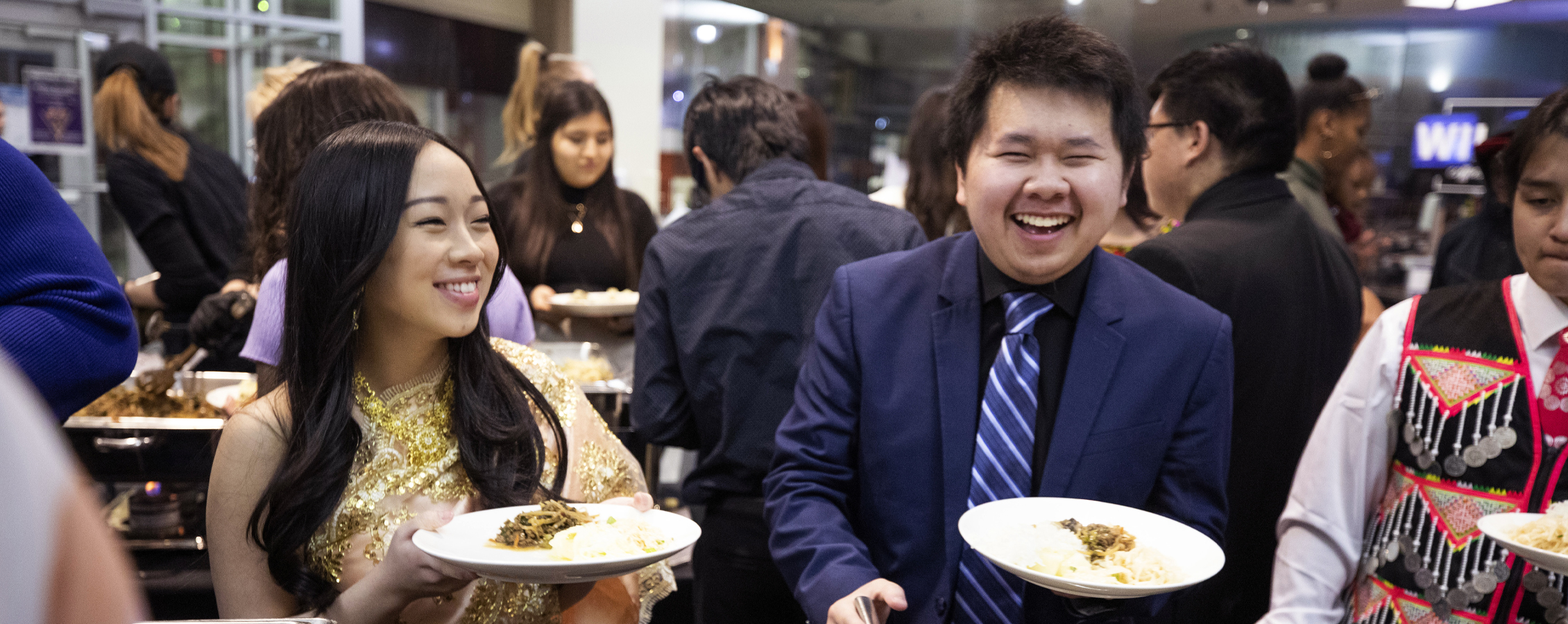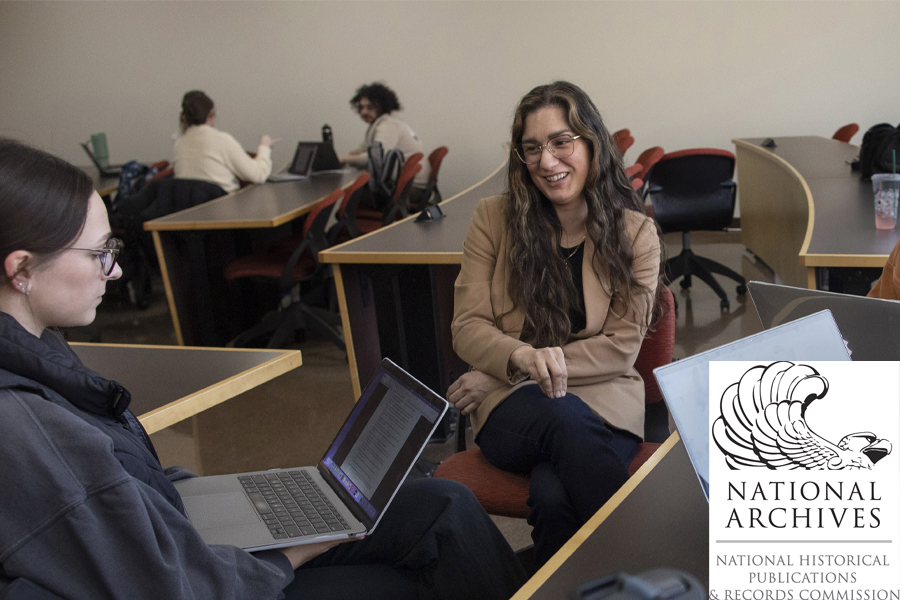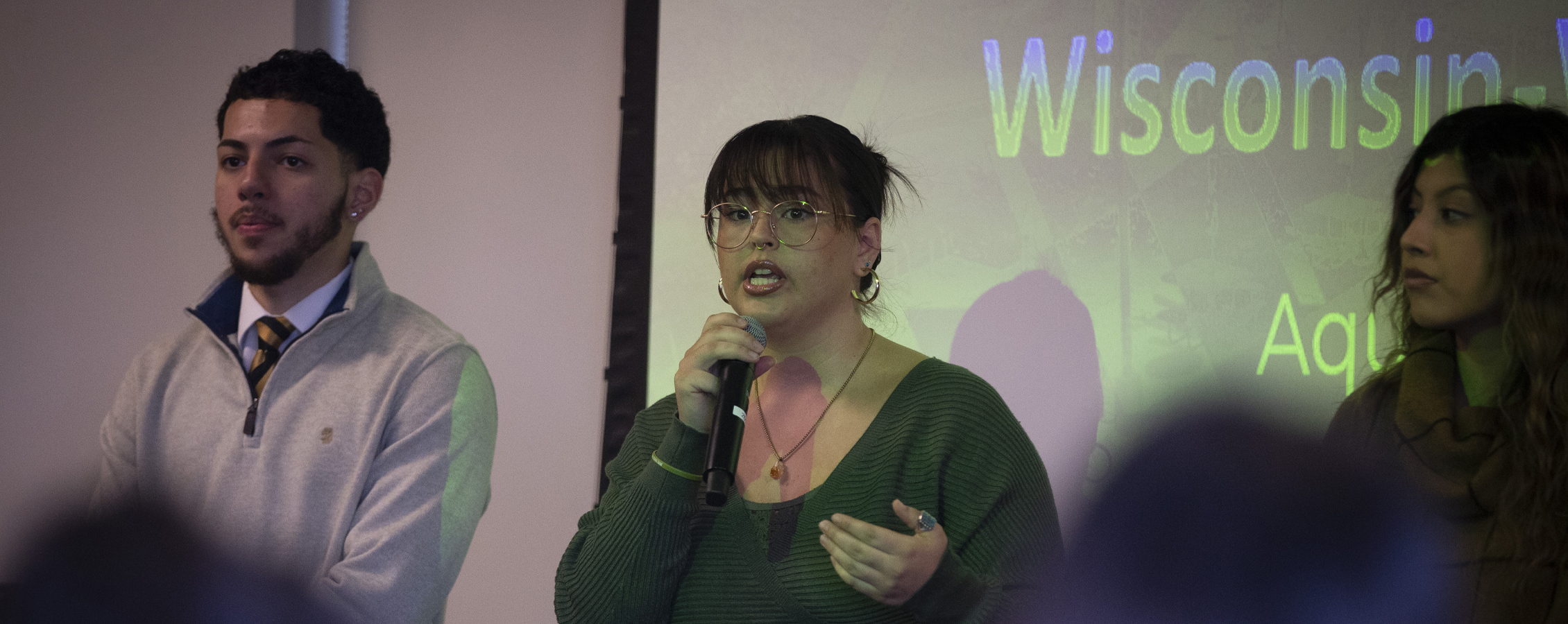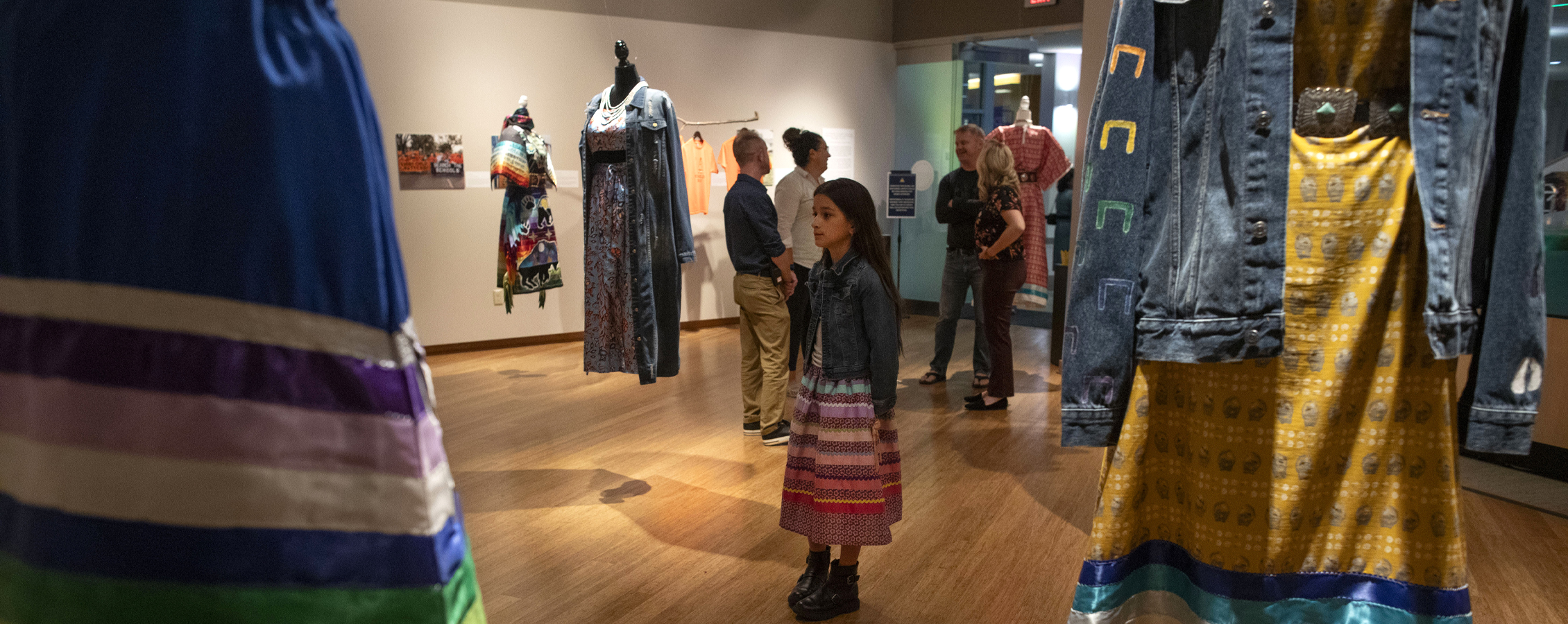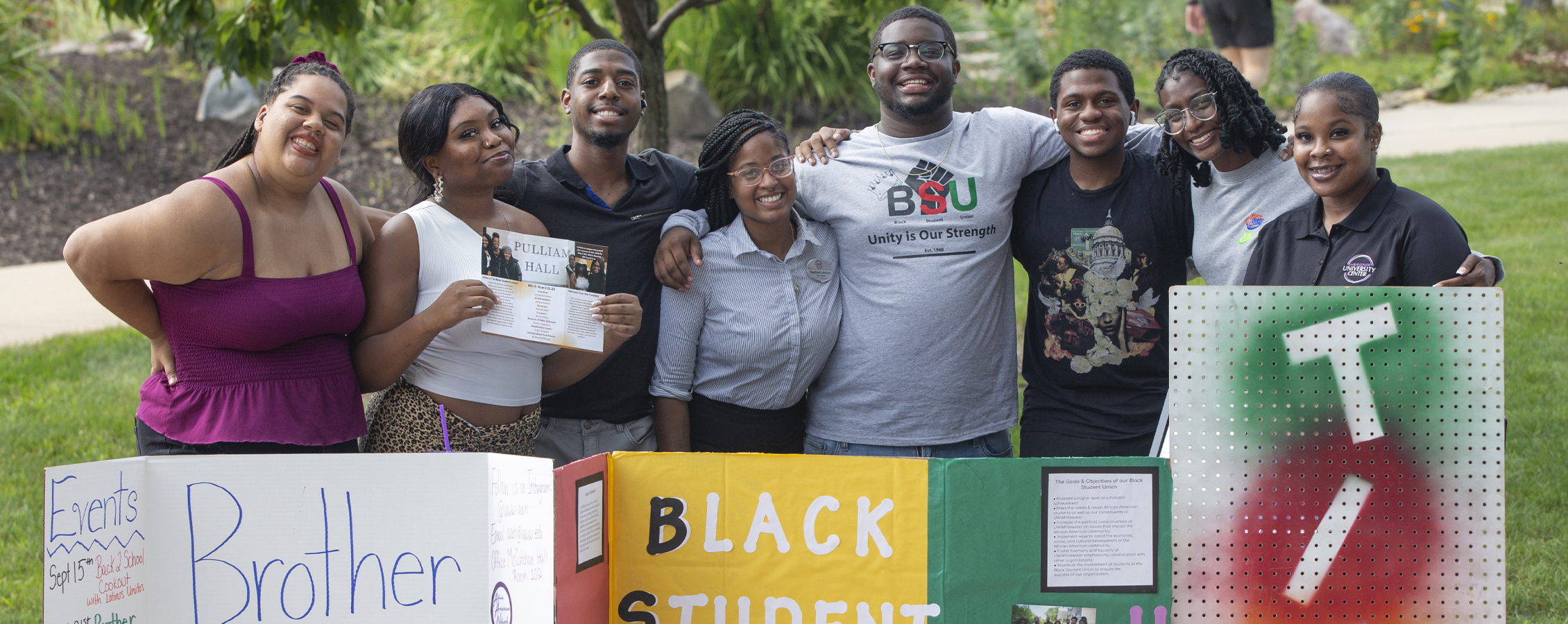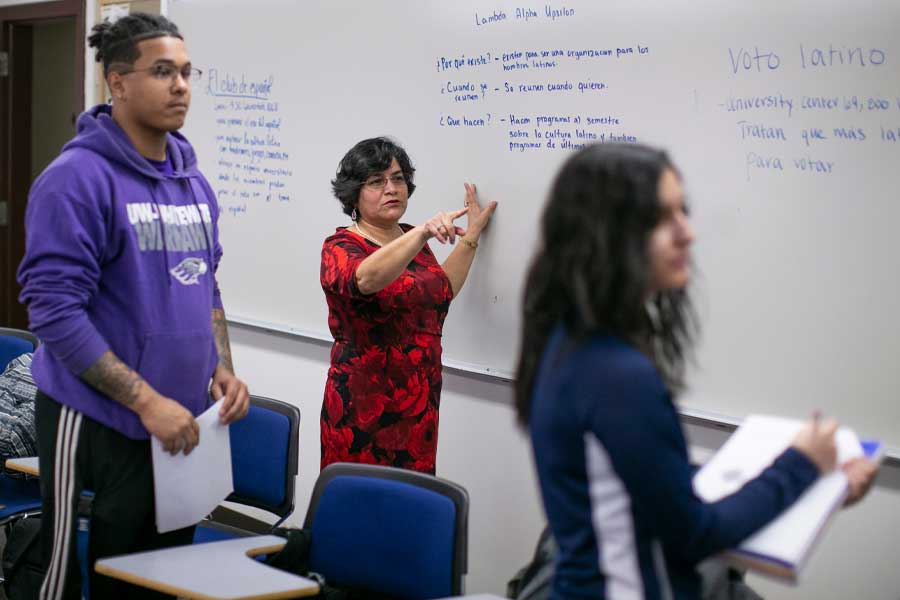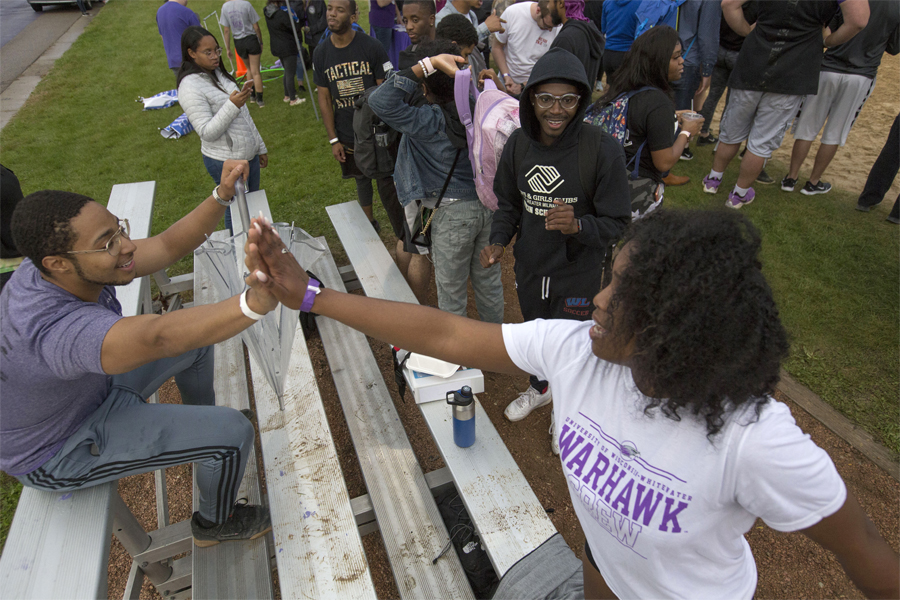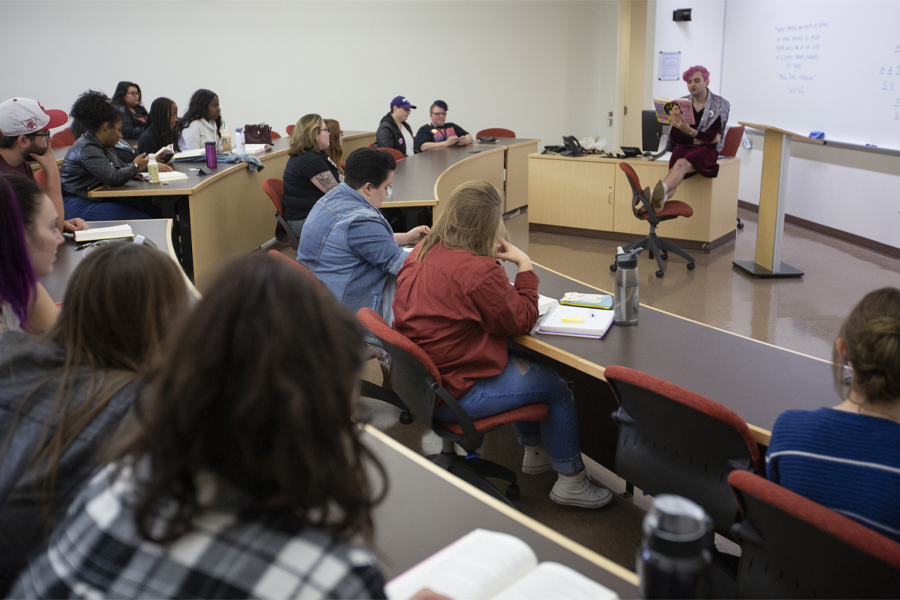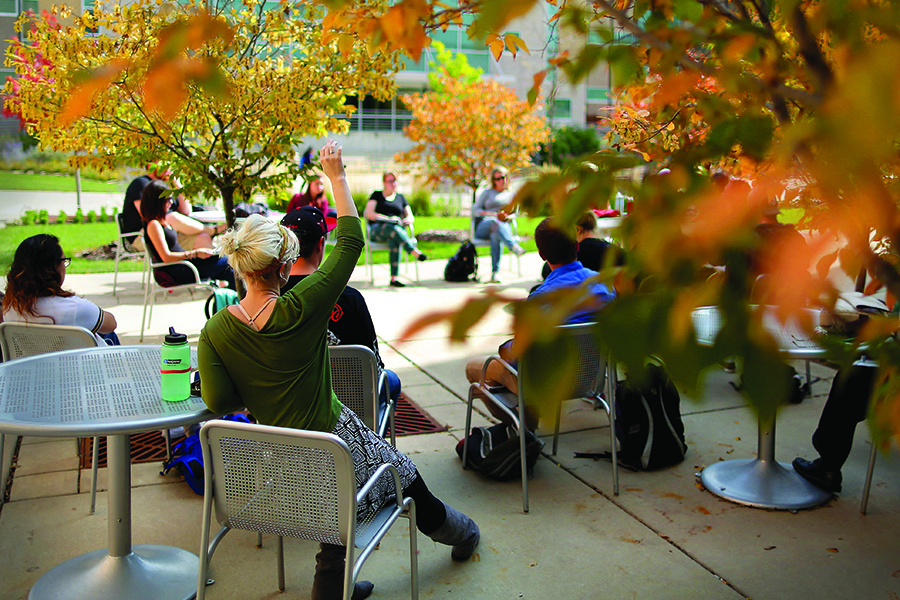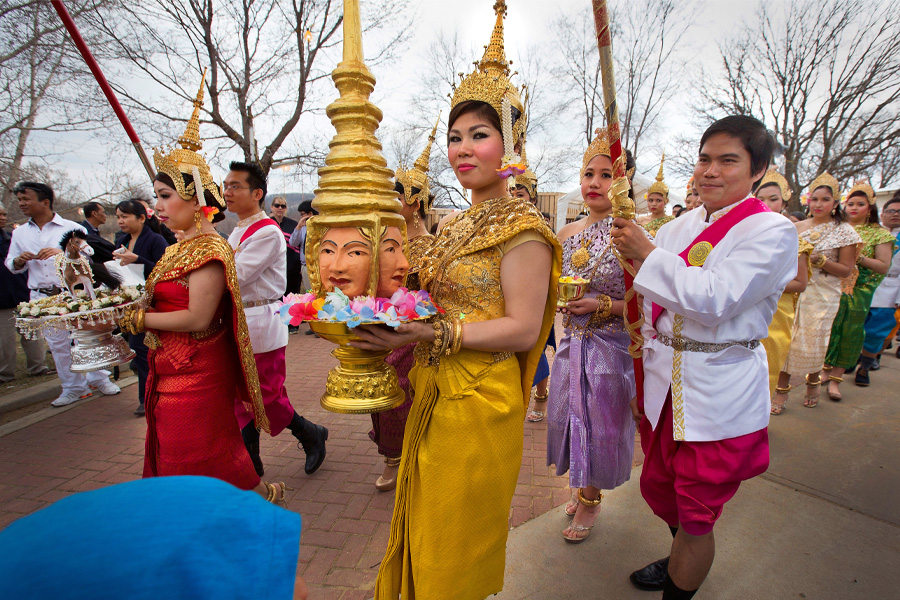RACE AND ETHNIC STUDIES
Minor Programs
Build cultural competence. Develop skills to land your dream job.
In an ever-changing nation and international community of people, the skills gained by pursuing a minor in the Race and Ethnic Studies program will be valuable to your personal and professional life.
Whether you want to enter a field in communication, criminal justice, political science, natural sciences, psychology, sociology, social work, teaching or others, the Race and Ethnic Studies minor will help you interact with people from diverse backgrounds at work and in your community. With 18 credits open for electives, take advantage of the benefits of Race and Ethnic Studies by molding your minor around your major and supporting your post-graduation goals.
Most of the U.S. Bureau of Labor Statistics’ top 20 fastest-growing occupations as projected through 2032 require the following skills that are central to the Race and Ethnic Studies minors:
- Communication skills and/or interpersonal skills
- Analytic skills
- Intercultural communication
Program and Degree Requirements
CAN WE BRAG A LITTLE?
Why study Race and Ethnic Studies at UW-Whitewater?
UW-Whitewater is proud to be home to one of the oldest collegiate Race and Ethnic Studies programs in the nation. The program was founded more than 50 years ago.
In the modern, highly diverse labor force, employers in the private and public sectors will find these minors particularly attractive.
When you start your journey at UW-Whitewater, you’ll receive a solid foundation in the field of your choice. You’ll pair one of the Race and Ethnic Studies minors below with a major that best suits your educational and career goals.
Don’t worry if you’re not sure which path to take. UW-Whitewater's Career Services office offers many opportunities for students to explore their academic and career interests, including career counseling, career courses, testing, computer information/guidance programs and an alumni network of professionals to contact.
Race and Ethnic Studies
The Race and Ethnic Studies minor uses a multicultural and multidisciplinary approach to deepen your understanding of race and ethnicity within the United States. Courses encompass African American, First Nations and Indigenous peoples, Asian American, and Latinx perspectives.
African American Studies
Learn about the unique history, rich culture and racial realities of African Americans, the second-largest minority group in the United States. Courses highlight the distinct systemic struggles of African Americans from economic and political perspectives and analyze the adaptation strategies that illuminate the resilience of African Americans as well as their contributions to equality and prosperity in the United States.
First Nations and Indigenous Studies
First Nations peoples make up about 1% of the population of the United States. Though small in numbers, their presence in the United States as sovereign entities-nations-help us understand and define the historic and contemporary condition of American democracy. Courses in this minor reveal the rich and diverse cultural, political, economic, and social experience of First Nations peoples, then and now.
Asian/Asian American Studies
The Asian/Asian American Studies minor combines Asian Studies and Asian American Studies into a cross-cultural and interdisciplinary minor that focuses on the rich histories, cultures, and literary traditions of both groups, examining their commonalities and differences.
Latinx/Latin American Studies
Study the largest population in the Americas– Latinx and Latin Americans. This minor examines issues of Latinidad (or being/living Latinx) within the U.S. and Latin America through a multidisciplinary, domestic and transnational lens.
What our Race and Ethnic Studies students do
Hands-on learning experiences
King/Chávez Scholars
The King/Chávez Scholars Program is a scholarship program designed to champion exceptional undergraduate students in their first year at UW-Whitewater. Students come from diverse backgrounds, live and study together on campus, and engage in experiences that will prepare them to be leaders that inspire, engage, and transform the UW-Whitewater campus community and beyond.
King/Chavez has a history of producing a pool of potential prospects for the McNair Scholars Program and University Honors Program.
You apply while still in high school. Applications for the 2024-25 cohort are now open and will remain open until all spots are filled.
Learn more about the application process »
Research opportunities
Unlike some universities, UW-Whitewater not only allows — but encourages — students to get involved in actual research early in their college experience.
The Research Apprentice Program is a wonderful opportunity for freshman-and-sophomore-level students to get their feet wet in research and get paid for it! Students can learn new skills and connect with STEM faculty in the earlier stages of their schooling.
We are nationally known for our Undergraduate Research Program — which gives students the opportunity to apply their knowledge outside of the classroom and dive deeper into their field of interest. You can work alongside a faculty mentor as a student researcher, or create an independent, student-led project with a mentor's help.
Internships
Students will have the opportunity to apply for internships at reputable organizations throughout southern Wisconsin and beyond. Our faculty are well connected with other professionals who work to help others understand people from diverse backgrounds and make a positive impact on their communities.
Community-Based Learning
The Community-Based Learning program provides opportunities that both help students succeed in their academic programs and promote civic responsibility. You can engage in research, data collection and analysis, problem solving, and evaluation of community initiatives.
Campus and community involvement
The Race and Ethnic Studies program collaborates with the following student organizations:
Spaces and places: On and off campus
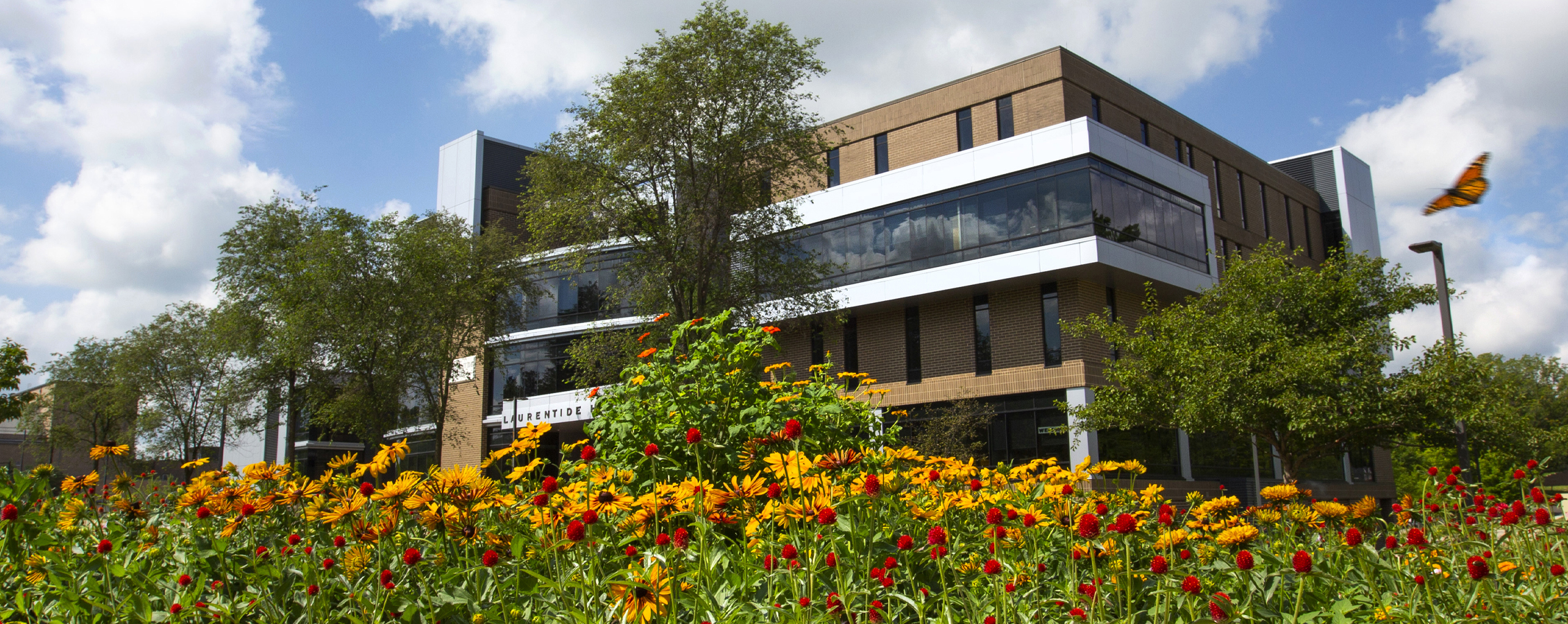
UW-Whitewater is a welcoming, safe and inclusive place where students, faculty and staff champion one another. The following on-campus and community facilities support the university family and the Race and Ethnic Studies program:
- Laurentide Hall
- DuBois Library
- Comfortable study spaces on the third and fourth floors
- Warhawk Connection Center
What our graduates do
Careers: What can you do with a Race and Ethnic Studies minor?
After earning their degree with a minor in Race and Ethnic Studies, UW-Whitewater graduates find a variety of positions in various sectors. Our alumni work as social workers, psychologists, police officers, marketers, teachers, politicians, inclusivity leaders and healthcare professionals.
Here’s just a sample of companies where our alumni have gone on to work:
- RRCC-Fort Atkinson Community Clinic
- Madison School District
- Illinois State University
- University of Wisconsin-Madison Admissions
- University of Wisconsin-Whitewater Department of World Languages and Cultures
- UW Credit Union
- Peace Corps
- Immigration and Customs Enforcement (ICE)
Want to learn more about minors in Race and Ethnic Studies?
262-472-5269 | lebensc@uww.edu
Our Race and Ethnic Studies faculty
With decades of combined experience, core and affiliated faculty members in Race and Ethnic Studies strive to create a space where everyone can work together to develop their full potential.
 Paul Adogamhe
Paul Adogamhe
262-472-2634
adogamhp@uww.edu
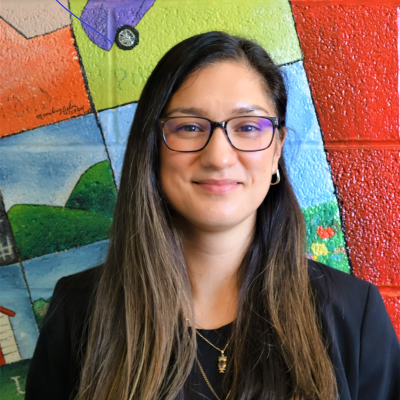 Yesenia Cervera
Yesenia Cervera
262-472-5253
cerveray@uww.edu
 Pilar Melero
Pilar Melero
262-472-3173
melerop@uww.edu
 Holly Denning
Holly Denning
262-472-5777
denningc@uww.edu
 Julien Grayer
Julien Grayer
262-472-1098
grayerj@uww.edu
 Rossitza Ivanova
Rossitza Ivanova
262-472-7399
ivanovar@uww.edu
 Crista Lebens
Crista Lebens
262-472-5269
lebensc@uww.edu
 Nengher Vang
Nengher Vang
262-472-1113
vangn@uww.edu
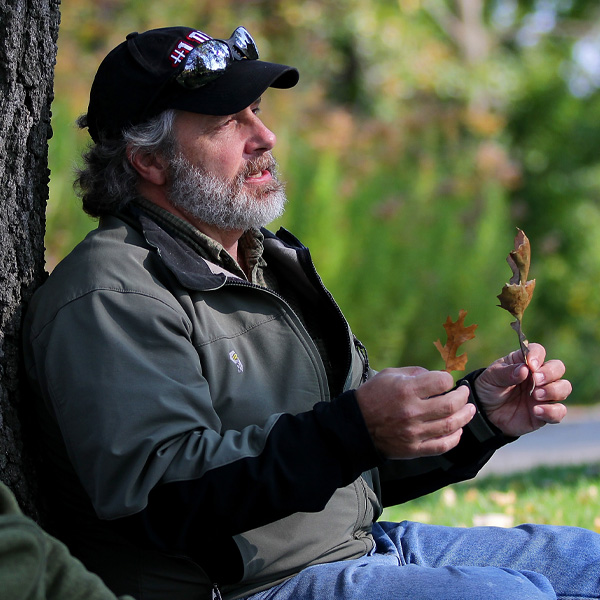 Tony Gulig
Tony Gulig
262-472-5148
guliga@uww.edu
All of our minors require a Race and Ethnic Studies introductory and capstone course, allowing 15 or more credits open for electives so students can tailor their minor to pair well with their major and support their post-graduation plans.
Elective offerings are interdisciplinary, drawing on courses from Race and Ethnic Studies, sociology, literature, history, political science, anthropology, women’s and gender studies, geography, philosophy and social work.
UW-Whitewater offers the following minors:
- Race and Ethnic Studies
- African American Studies
- First Nations and Indigenous Studies
- Asian/Asian American Studies
- Latinx/Latin American Studies
In addition to UW-Whitewater’s general education requirements, you’ll take a variety of core and elective classes that will vary based on your major and chosen minor.
Here’s an example of classes Race and Ethnic Studies students may take:
- Multicultural Literature of the United States
- American Minority Politics
- Race, Ethnicity and Film
- American Minority Women Writers
- Sociology of Social Class
- Minorities and the Criminal Justice System
- Gender, Ethnicity and the Environment
To apply, you’ll complete the UW-Whitewater standard application for admission and choose the Race and Ethnic Studies minor you are interested in pursuing.

